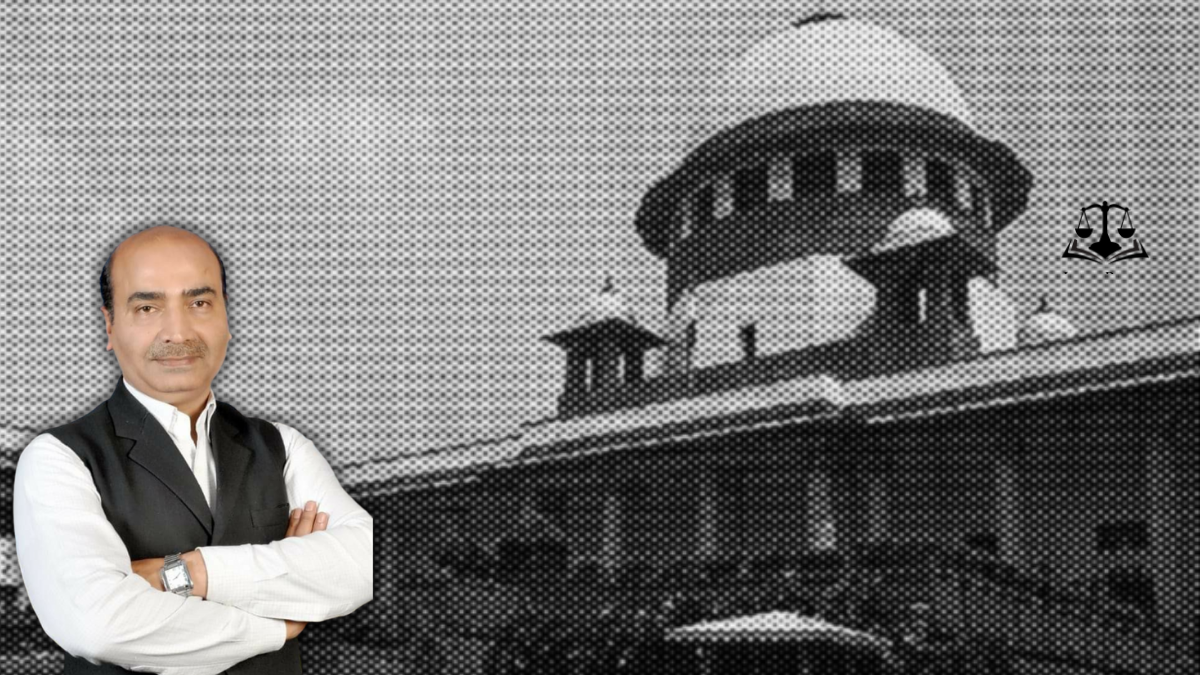It is unfortunate that after 74 years of independence, India doesn’t have an Indian Civil Code embodying ‘soul of the Constitution’: Letter to the Chief Justice of India

In his letter addressed to the Chief Justice of India, Hon’ble Justice Sh. N.V. Ramana, Adovocate Ashwini Upadhyay has requested the Chief Justice to constitute Bench to decide six pending PILs in Supreme Court relating to gender justice and gender equality.
The advocate drew attention of the Chief Justice towards the graveness of the pendency of the six PILs in the Supreme Court as these six PILs will pave the way for India to cut free from old biased laws denying people of the country a well-deserved a uniform civil code consistent with human rights and the principles of equality, fairness and justice regardless of the religion or gender under the torch of Article 44 of the constitution.
These pending PILs seek following six reliefs to aid people of India procure justice in its true sense:
- Ban on Polygamy, Halala, Mutah, Misyar and Sharia Court.
- Gender Neutral Religion Neutral Uniform Minimum Age of Marriage.
- Gender Neutral Religion Neutral Uniform Grounds of Divorce.
- Gender Neutral Religion Neutral Uniform Grounds of Adoption and Guardianship.
- Gender Neutral Religion Neutral Uniform Grounds of Succession and Inheritance.
- Gender Neutral Religion Neutral Uniform Grounds of Maintenance and Alimony.
In the letter, the advocate has stated the unfortunate fact that even after 74 years of independence, the successive governments of the country have gravely failed to enact the legislation which carry the soul of our Constitution, ‘Indian Civil Code’.
Article 44 of the Indian Constitution states that “the State shall endeavour to secure for the citizens a uniform civil code (UCC) throughout the territory of India.” The governments have deprived Indian Citizens from uniform justice.
The advocate has stated that though the Governments have amended the Constitution 125 times and nullified the Supreme Court judgment five times but they did nothing to bring about an Indian Civil Code which will become the torch bearer of civil rights and human rights in the country without any gender or religion biasedness.
The letter emphasizes on the fact that for the past seven decades, the Supreme Court has successfully acted as a ‘temple of justice’ for every citizen of this country. In this journey, it has assumed numerous roles, including the custodian of the Indian Constitution, guardian of human rights and fundamental rights and defender of democracy and rule of law. It has kept pace with the developments of society and has never wavered in upholding constitutional values.
A Uniform Civil Code (UCC) in the spirit of Article 44 of Indian Constitution has been a topic of debate since long. This issue dates back to year 1985 when it emerged as a crucial topic of interest in Indian politics following the Shah Bano case. A Uniform Civil Code was proposed twice, in November 2019 and March 2020 but was withdrawn soon both of the times without introduction in parliament.
A plea was also filed in Delhi high court which sought establishment of a judicial commission or a high level expert committee to direct central government to prepare a draft of UCC in three months. In April 2021, a request was filed to transfer plea to the Supreme Court so that filing of more such pleas throughout various high courts doesn't bring inconsistency throughout India.
